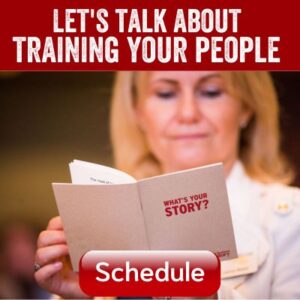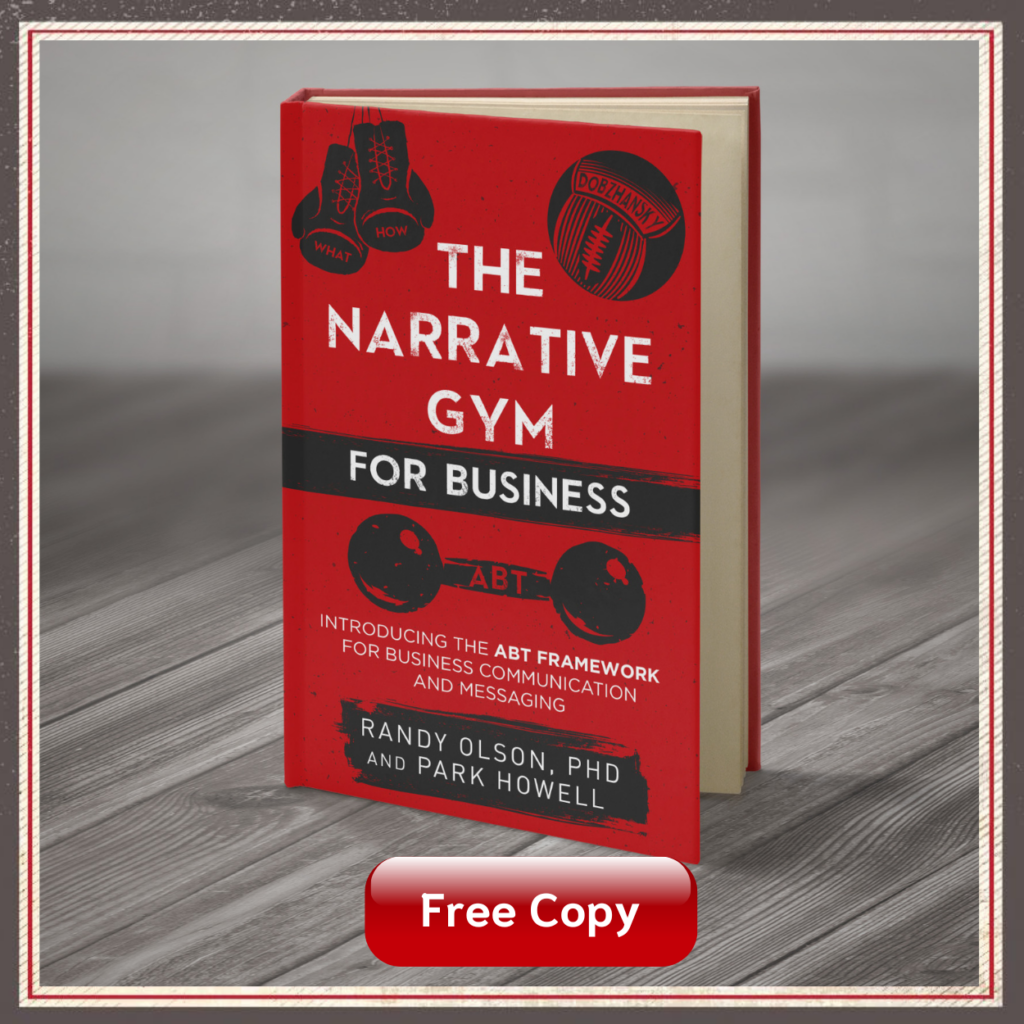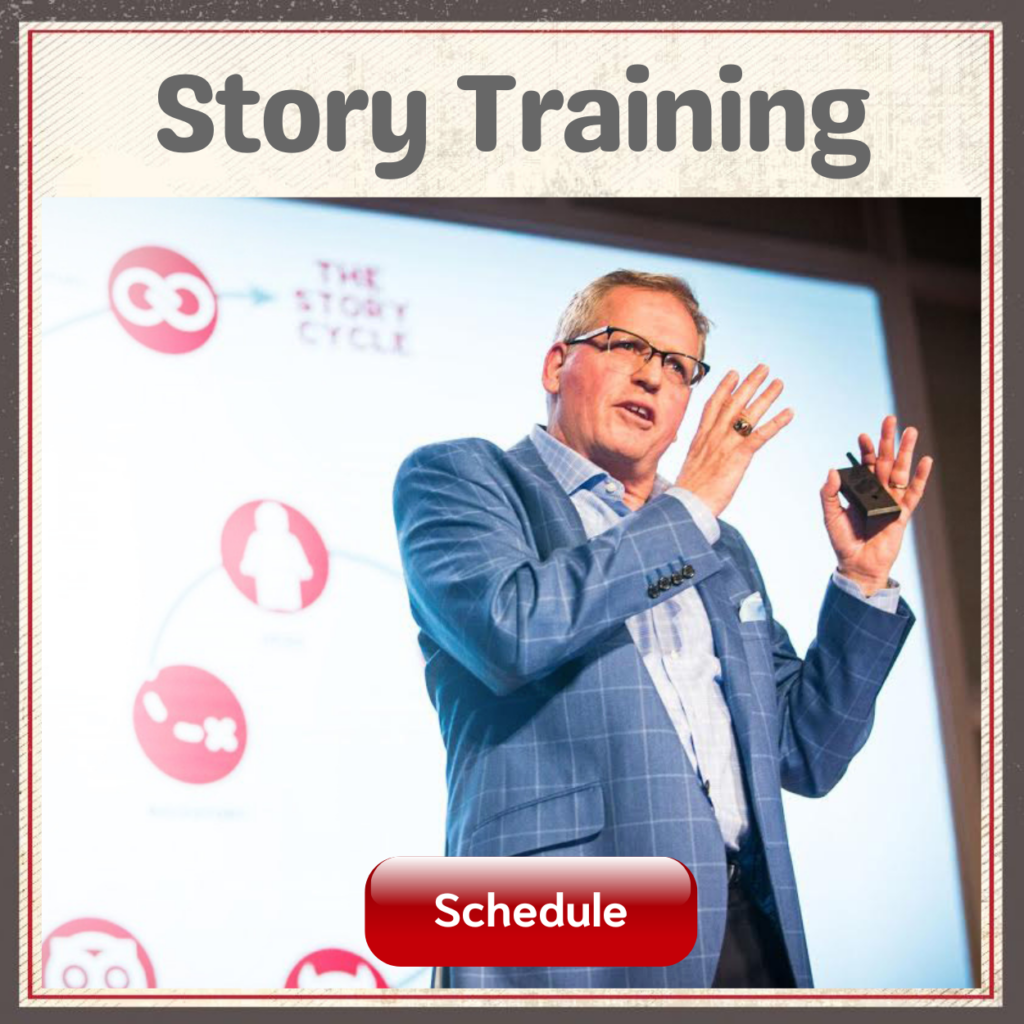How EI + AI = ROI, Your Return on Intelligence With Dr. Robin Hills
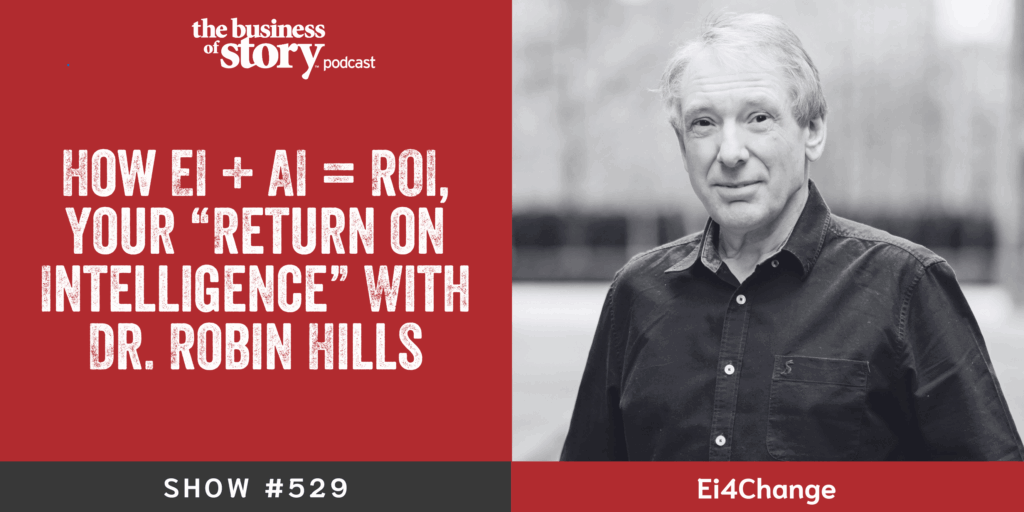
The New ROI Formula That’s Transforming Leadership Storytelling
Forget everything you thought you knew about ROI. In today’s AI-driven business landscape, Return on Intelligence isn’t just about financial metrics, it’s about combining Emotional Intelligence + Artificial Intelligence to create unprecedented competitive advantage.
As business leaders worldwide race to implement AI solutions, you understand that technology alone won’t build the authentic relationships that drive sustainable success.
What matters most is developing the emotional intelligence that separates exceptional leaders from those who simply manage automated processes.
But here’s the frustrating reality: most executives struggle to harness both AI’s efficiency AND emotional intelligence’s power because they view them as competing forces rather than complementary capabilities.
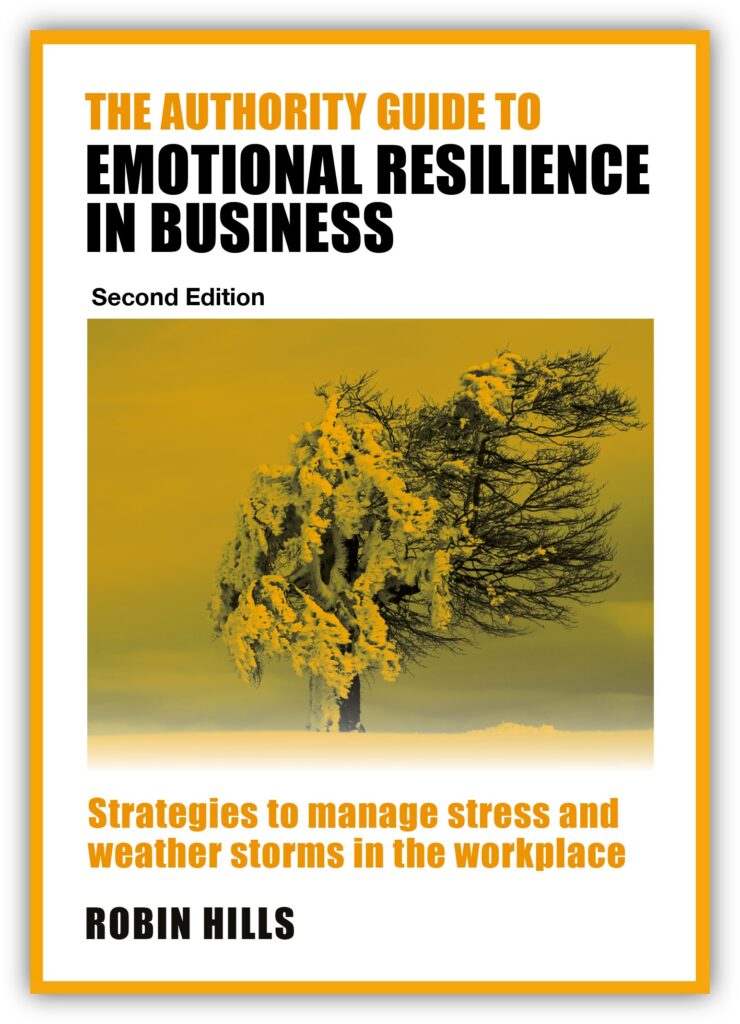 That’s exactly where Dr. Robin Hills transforms your leadership approach, revealing how emotional intelligence becomes your secret weapon in the AI age.
That’s exactly where Dr. Robin Hills transforms your leadership approach, revealing how emotional intelligence becomes your secret weapon in the AI age.
Dr. Hills is the author of the new book The Authority Guide to Emotional Resilience in Business: Strategies to Manage Stress and Weather Storms in the Workplace.
Why Park’s “AI Doesn’t Bleed” Insight Changes Everything
In our latest Business of Story episode, Park crystallized the fundamental difference between artificial and human intelligence with one powerful phrase: “AI doesn’t bleed.”
Robin, recently awarded “International Impact Company of the Year” by Dotcom Magazine, immediately recognized the profound truth in Park’s observation. “Exactly,” Robin responded. “Look to where you bleed, where your passion and curiosity lie. Bots don’t bleed, but humans do.”
That bleeding, your passion, creativity, and emotional connection, represents the irreplaceable value you bring to an AI-enhanced workplace.
The Hearing Loss That Built a Superpower
Robin’s journey into emotional intelligence began accidentally. Undiagnosed hearing loss forced him to become hyperaware of body language, tone, and emotional nuances—inadvertently developing the deep empathy that now powers his EI expertise. This unexpected challenge became his greatest professional strength.
The lesson? Sometimes our limitations become our superpowers when we learn to compensate with emotional intelligence.
COVID-19 and AI: The Parallel Emotional Journey
Robin identified striking similarities between how leaders processed COVID-19 uncertainty and current AI anxiety. Both follow predictable emotional patterns:
- Initial denial and fear
- Anger and resistance
- Gradual adaptation
- Strategic integration
Understanding this emotional journey helps leaders navigate AI adoption more effectively.
Live AI Analysis Reveals Authentic Brand DNA
During our conversation, we demonstrated the StoryCycle Genie™ analyzing Robin’s brand in real-time. The AI identified his authentic archetypes (Sage, Magician, Caregiver) and crystallized his unique value proposition: “Emotional mastery for the AI age.”
But here’s what made it powerful—Robin’s emotional intelligence validated and refined the AI output, proving that EI + AI = ROI (both Return on Investment AND Return on Intelligence).
Your Emotional Intelligence Action Plan
- Identify where you “bleed”: your passion points that AI can’t replicate
- Develop active listening skills that enhance AI-generated insights
- Use empathy to validate and humanize AI outputs
- Position yourself around creativity, innovation, and relationship-building
Ready to Develop Your Return on Intelligence?
Dr. Robin Hills offers a complimentary “Insights into Emotional Intelligence” course for Business of Story listeners, your first step toward mastering the EI + AI combination that’s defining tomorrow’s leaders.
Because in a world where AI handles the data, your emotional intelligence handles the relationships that drive real business results.
Ready to amplify your leadership through Return on Intelligence? This episode reveals how emotional intelligence becomes your competitive advantage in an AI-driven world.
What’s In It For You:
- Emotional intelligence is crucial for navigating uncertainty.
- Empathy and active listening are core components of emotional intelligence.
- Future-proofing oneself involves understanding one’s purpose and emotional intelligence.
- Storytelling is deeply connected to emotional intelligence.
- AI cannot replicate the emotional impact of human storytelling.
Chapters:
- 00:00 Introduction to Dr. Robin Hills
- 03:14 The Journey to Emotional Intelligence
- 07:21 Navigating Emotional Challenges in a Changing World
- 13:11 Emotional Intelligence vs. Artificial Intelligence
- 18:49 Leveraging Emotional Intelligence in Storytelling
- 23:43 Future-Proofing Through Emotional Intelligence
- 27:37 The Evolution of Communication and Technology
- 28:56 Finding Meaning and Legacy in Life
- 29:58 The Impact of AI on Careers
- 31:26 The Role of Storytelling in Business
- 35:17 Emotional Intelligence in Leadership
- 38:54 Building Authentic Relationships
- 44:00 The Power of Empathy in Communication
- 47:28 Refining Brand Identity with AI
- 53:45 Unique Value Proposition in the AI Age
- 55:40 The Future of AI and Emotional Intelligence
Links:
- EI4Change.com
- Dr. Robin: on LinkedIn
- EI4Change on X
- EI4Change on Instagram
- EI4Change on Facebook
- Life Pilot Podcast
- The Authority Guide to Emotional Resilience in Business book
- Download the free book Develop Your Emotional Intelligence
- Find over 100 podcasts with Robin
- What users are saying about the StoryCycle Genie™
Popular Related Episodes You’ll Love:
Your Storytelling Resources:
Connect with me:
- Instagram: https://www.instagram.com/parkhowell/
- Facebook: https://www.facebook.com/groups/BusinessOfStory
- YouTube: https://www.youtube.com/channel/UC0ssjBuBiQjG9PHRgq4Fu6A
- Twitter: https://twitter.com/ParkHowell
- LinkedIn: https://www.linkedin.com/in/parkhowell/
- Website: https://businessofstory.com/abt/
Transcript of Show:
Park: Howell:
Dr. Robin:, welcome to the Business of Story.
Dr. Robin:
It’s a pleasure to be featured on your show. Thank you for having me.
Park:
Now, you don’t like to go by Dr. Robin:. What’s the backstory there?
Robin:
I was awarded an honorary doctorate from a Mexican university, having been nominated by an Indian company last year. To be a doctor, most people take a PhD, do a lot of research, and work for three, four, or many years—sometimes more—to earn the title. They’re quite proud of it. I’m very proud of my honorary doctorate, but since I wasn’t out there looking for it, I feel a little uncomfortable when people call me “Doctor.” I haven’t quite got used to it. And with it being honorary, I can really only use it in certain circumstances. If people want to use it, fine, but more often than not, outside professional circles, I’m just Robin:. I’m still the same man I was before, and that’s the important part.
Park:
Well, they’re obviously recognizing you globally for your experience and achievements in emotional intelligence and leadership. It sounds like it was hard work earned—hard earned through your body of work.
Robin:
Yes, I feel proud of my work, but I’m incredibly humble. I know there are others just as deserving who haven’t received this recognition. I’ve got to learn to wear the badge with honour.
Park:
You’re not telling me you have imposter syndrome, do you?
Robin:
Yes—like everybody else. I’m proud of where I am today, but I’m still the same old Robin:: a father, partner, and grandfather. That’s who I am first, then comes the work title, which is important but not what drives me.
Park:
And you’re coming to us from a scorching United Kingdom right now. You’ve been hot all summer long.
Robin:
We’re fortunate to live slightly higher up in the rainy parts of Greater Manchester, so we’ve had rain and a green lawn while others’ are brown. But yes, at the moment, it’s hot.
Park:
Something in your bio caught my attention: you had some hearing challenges that launched you into paying more attention to emotional intelligence. Can you tell us about that?
Robin:
I didn’t know I had hearing problems—my wife and daughters kept telling me I was deaf. I probably started losing hearing in my early to mid-20s, but no one picked up on it. I compensated by really listening to nuances—body language and tone—which helped me build a high degree of empathy. People said I was a great listener, though I didn’t think so. In my early 50s, I finally went to the doctor, expecting him to dismiss it. Instead, he said my records showed ear issues and sent me for tests. The consultant found no clear cause, but offered hearing aids or a risky operation. I chose hearing aids.
Park:
How do you think that’s helped you in teaching and coaching on emotional intelligence?
Robin:
It’s given me deep insight into how people communicate, into active listening, and into empathy—core components of emotional intelligence. I’m probably better placed than most to talk about these topics and encourage others to use them appropriately.
Park:
I noticed a similarity between COVID brain fog and the uncertainty many feel now with AI. During COVID, people experienced depression, memory loss, and anxiety due to the uncertainty. I think AI is causing similar concerns in business, marketing, and leadership. Do you see that?
Robin:
Yes, people go through a similar emotional pathway when faced with major change. With COVID, there was initial anxiety, denial, fear, anger, despair, even hostility. Eventually, people adapted. With AI, the same stages appear—many still feel threatened, fearing job loss. The genie’s out of the bottle; we must work with it. Emotional intelligence is the future of humanity. It can help us adapt and use AI as a tool to get better outcomes.
Park:
So emotional intelligence, like storytelling, has always been here. The future is AI, but EI helps us collaborate with it to make us better human beings.
Robin:
Absolutely. Storytelling taps into emotions, and emotions drive stories. AI can create stories, but without emotional impact. Humans innovate, take risks, and create art that evokes feelings—AI can’t truly replicate that.
Park:
Right. And AI lacks the emotional understanding to advise us on how to use its output for impact. So, how do you use EI to understand your audience and tailor stories to them? And how do you apply EI to AI?
Robin:
Emotional intelligence is being smart with your feelings—using emotional data to make decisions, build authentic relationships, and act. Emotions aren’t good or bad—they’re physiological and psychological reactions. We must decide how to use them constructively. AI is just a tool. Humans can innovate, build networks, persuade, and bring spiritual intelligence—purpose and meaning—that AI can’t.
Park:
Exactly. AI removes the tedium, giving us time to validate, close gaps, and get inspired, but humans must add emotional connection.
Robin:
Yes. AI will change jobs. Identify where you use creativity, empathy, and innovation—these will future-proof you.
Park:
And figure out where you “bleed”—where your passion and curiosity lie. Bots don’t bleed, but humans do.
Robin:
Exactly. Look to the future, position yourself to embrace new ideas, and work with them. My legacy is about meaning—asking, “Why am I here?”—and protecting that from AI’s challenges.
Park:
AI could be ravenous, but also helpful. If you’re not paying attention, it will impact or eliminate your career path. But used right, it amplifies human storytelling.
Robin:
And remember, AI doesn’t bleed.
Park:
That’s what separates us from the bots. You also emphasize using empathy to craft narratives. AI is just an algorithm; it processes words but can’t feel. I ran your brand through the StoryCycle Genie, which created this ABT for corporate leaders… [reads ABT]. What do you think?
Robin:
It’s brilliant and sums up what I do. But I wouldn’t lead with the term “emotional intelligence” to senior executives—they often misunderstand it as overly emotional behavior. I frame it in terms of leadership, communication, and collaboration outcomes, without naming EI unless asked.
Park:
Exactly—it’s about the outcomes, not the vehicle.
Robin:
Yes, my sales background taught me to focus on benefits, using empathy and deep listening.
Park:
And that empathy is built into the ABT—showing understanding, appreciation, and empathy before offering the call to action.
Robin:
Yes, and the more you engage and listen, the better these statements become.
Park:
And you need an empathetic eye when refining AI outputs. The Genie is built on empathy as well as logic.
Robin:
For years I struggled to bottle EI for Change’s essence. The Genie nailed it—minus one small mix-up with Dan Hill, which you fixed. I was also impressed with the archetypes it identified: sage, magician, caregiver—that’s exactly who I want EI for Change to be.
Park:
That means your brand personality is already coming through clearly. And the Genie helps you create consistent, authentic content. Do you already have a unique value proposition?
Robin:
Yes—making emotional intelligence practical and applicable through online learning. You can’t learn EI from a book alone; you must practice. That’s our USP, though the Genie phrased it more concisely: “Emotional mastery for the AI age.”
Park:
Perfect. And EI plus AI equals ROI—return on intelligence.
Robin:
And return on investment.
Park:
Well, Robin:, this has been amazing. You mentioned you had a free course for our listeners?
Robin:
Yes—Insights into Emotional Intelligence. It will give you an introduction, but to truly develop EI, you must practice it regularly.
Park:
Absolutely. Robin:, thank you so much for bringing your intelligence to this emotional conversation.
Robin:
It’s been brilliant, Park:. Thank you.
 Listen To More Episodes
Listen To More Episodes



